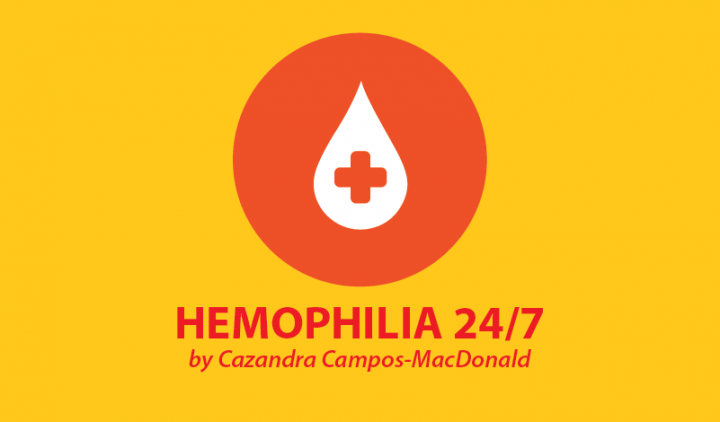How Do You Know When a Child’s Pain Is Real?

Parenting is not easy. And when you have a child with a rare bleeding disorder such as hemophilia, it is exponentially more difficult. Not only are you dealing with the typical ear infection, cough, or broken wrist, you also must consider how hemophilia plays into the mix.
My youngest son, Caeleb, just turned 14, and his medical issues have changed quite a bit. The changes mostly have been for the better, but there is one area that is a challenge.
Now that Caeleb is on a treatment that has kept his bleeding under control, he is dealing with something equally difficult for a teenager: chronic pain. Repeated bleeds for several years damaged his right knee and ankle, causing him pain. But here lies the problem: How do I know if his pain is real?
I suspect most parents have heard their children complaining of an ear aching or a stomach feeling queasy and responded with something like, “OK, go lie down and rest.” Sometimes we ignore the symptom in the hopes that it is insignificant and will work out on its own. I’ve done this and later discovered that my son had a double ear infection or a fever! It happens to the best of us. But with Caeleb’s chronic pain, I am never quite sure of what is truly significant.
To my knowledge, my sons have never been ones to “fake” a bleed or a symptom to get out of doing something. I tend to believe them when they say they are not feeling well. But I also tend to brush off Caeleb’s complaints about his pain, especially when they come as we are singing a hymn at church. I have come to realize that his pain seems to be magnified on Sunday mornings.
But how do I know if his pain is critical? I have found myself brushing off his pain more often and I am afraid he may think that I don’t care. It’s not that I don’t care about his pain; it’s more that I don’t know what to do for him. I can give him pain medications and make sure he wears his braces and rests, but the overarching issue of living with chronic pain is hard to deal with, much less as a teenager.
All I can do is keep the lines of communication open and talk to him about how he is feeling. I get into trouble when I let my own fears get in the way. When I don’t have the answers, I fall victim to the fears and doubts I have as a mom.
***
Note: Hemophilia News Today is strictly a news and information website about the disease. It does not provide medical advice, diagnosis, or treatment. This content is not intended to be a substitute for professional medical advice, diagnosis, or treatment. Always seek the advice of your physician or another qualified health provider with any questions you may have regarding a medical condition. Never disregard professional medical advice or delay in seeking it because of something you have read on this website. The opinions expressed in this column are not those of Hemophilia News Today or its parent company, Bionews Services, and are intended to spark discussion about issues pertaining to hemophilia.






Leave a comment
Fill in the required fields to post. Your email address will not be published.